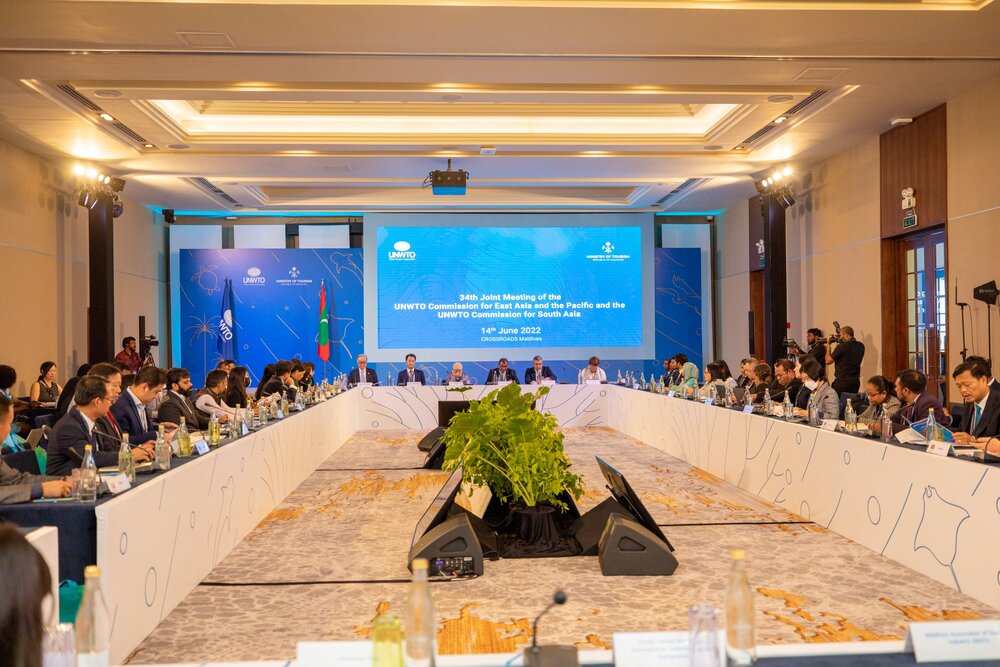Innovative, resilient tourism discussed at UNWTO Asia-Pacific meeting

TEHRAN – Representatives of 19 countries from the Asia Pacific region, including the Islamic Republic of Iran, have discussed tourism resilience through innovation and digitalization during a meeting organized by the World Tourism Organization (UNWTO).
Building resilience and embracing innovation at the heart of the tourism sector to provide a sustainable future as well as re-starting and recovery of tourism and the latest developments in this sector were discussed during the three-day Joint Meeting of the UNWTO Commission for East Asia and the Pacific and the UNWTO Commission for South Asia, which came to an end on June 16.
The event, which was held in the Maldives, was the first in-person Commission meeting in the region since 2019, after having virtual meetings for two consecutive years due to the pandemic.
Recognizing the vulnerabilities exposed by the coronavirus pandemic, the meeting explored ways in which new technology and new ideas can help better protect tourism against shocks including future pandemics as well as extreme weather events.
At the opening ceremony, UNWTO Secretary-General Zurab Pololikashvili provided an overview of tourism trends and statistics, both for the region and globally, followed by an update on the Organization’s work in the months since the previous Joint Commission meeting, hosted virtually by Spain in 2021.
He stressed the importance of working together to lift travel restrictions, with coordination key to restarting tourism and restoring confidence in international travel.
“For many millions of people across Asia and the Pacific, tourism is an essential lifeline. Its return is vital and must be based around the pillars of inclusion and sustainability, for the benefit of all,” he said.
In her speech, Leyla Ajdari, an Iranian expert in charge of foreign tourism marketing, discussed the damage caused by the coronavirus to the world tourism industry, tourism businesses, and the tourism industry of the Islamic Republic of Iran.
Furthermore, she recommended that governments should reconsider the future of world tourism and how they manage similar crises in the long run, as well as encourage outbound tourists to travel within the country.
Tourism has been particularly hard hit by the COVID-19 pandemic. The UN World Tourism Organization (UNWTO) projects a 60-80 percent decline in international arrivals for 2020 and the loss of millions of livelihoods in the tourism sector.
Lost tourism revenues mean fewer resources for the conservation of heritage sites, and a lack of visitors increases the risk of poaching and looting within these sites, according to UNESCO.
Sustainable and resilient tourism will be key to post-COVID-19 recovery, as tourism is a powerful driver of sustainable development, intercultural dialogue, and mutual understanding. Sustainable and resilient tourism should be in harmony with the environment, promote the safeguarding of cultural and natural heritage, protect livelihoods and benefit local communities.
The next Joint Meeting will be held in Cambodia in 2023.
ABU/AFM
